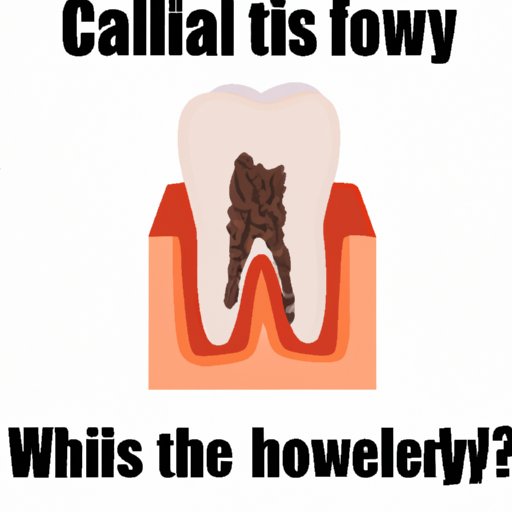Introduction
Having a cavity is a common dental problem that many people experience at some point in their life. However, not everyone knows how to recognize the signs of a cavity and understand how to prevent them. In this article, we will explore the signs and symptoms of cavities, the importance of dental examinations, proper dental hygiene, healthy eating habits, natural remedies, and different dental treatments for cavities. By the end of this guide, you will be equipped with the knowledge to take care of your teeth and maintain good oral health.
Signs and Symptoms of Cavities
The most common signs and symptoms of a cavity include tooth sensitivity, pain when biting or chewing, visible holes or pits in teeth, and tooth discoloration. However, some cavities may not show any visible signs, especially in the early stages. The symptoms may also vary depending on the severity and location of the cavity. For example, a cavity on the front teeth may be more noticeable, while a cavity on the back teeth may only be visible through an X-ray. It’s important to pay attention to any changes in your teeth and discuss them with your dentist.
The Importance of Dental Examinations
Regular dental examinations are crucial in detecting cavities before they become painful or problematic. Dental exams usually include a visual inspection, cleaning, and X-rays to examine teeth and gums. It’s recommended to have a routine dental exam every six months to maintain good oral health. Before the appointment, make sure to brush and floss properly to ensure accurate examination. During the appointment, don’t hesitate to ask any questions or share any concerns you may have with your dentist.
Maintaining Proper Dental Hygiene
The best way to prevent cavities is by maintaining proper dental hygiene. Brushing teeth twice a day, flossing daily, and using mouthwash can effectively remove plaque and bacteria that can cause cavities. It’s important to use the right technique and tools for brushing and flossing. For example, using a soft-bristled toothbrush and fluoride toothpaste can be more gentle and effective in cleaning teeth. Mouthwash can also help kill bacteria in hard-to-reach areas of the mouth.
Diet and Nutrition to Prevent Cavities
Diet and nutrition play a significant role in a person’s risk of developing cavities. Foods and drinks high in sugar and carbohydrates can feed the bacteria in the mouth, leading to tooth decay. It’s recommended to choose healthier alternatives such as fruits, vegetables, and dairy products. Drinking plenty of water can also help wash away food particles and bacteria. Avoiding sugary foods and drinks and practicing moderation can greatly reduce the risk of developing cavities.
Natural Home Remedies for Preventing or Treating Cavities
For those looking for natural or holistic remedies for treating or preventing cavities, there are various options available. Oil pulling, where one swishes a tablespoon of coconut oil in the mouth for up to 20 minutes, can help reduce bacteria and plaque. Saltwater rinses can also be effective in reducing inflammation and promoting healing. Herbal remedies such as licorice root or clove oil can offer relief from pain and inflammation.
Dental Treatments for Cavities
If a cavity has already formed, there are various dental treatments available based on the severity and location of the cavity. Fillings can be used to restore a tooth with minor decay, while root canals are necessary for more severe decay that affects the nerves. Crowns may be used to replace the damaged portion of a tooth. The type of treatment recommended by the dentist will depend on the severity of the cavity and the overall condition of the tooth.
Conclusion
In conclusion, recognizing the signs and symptoms of cavities, regular dental check-ups, proper dental hygiene, healthy eating habits, natural remedies, and different dental treatments for cavities can all contribute to maintaining good oral health. Taking care of your teeth and addressing any issues early on can help prevent serious dental problems in the future. If you suspect you may have a cavity or have any concerns about your oral health, don’t hesitate to schedule a dental examination with your dentist.
